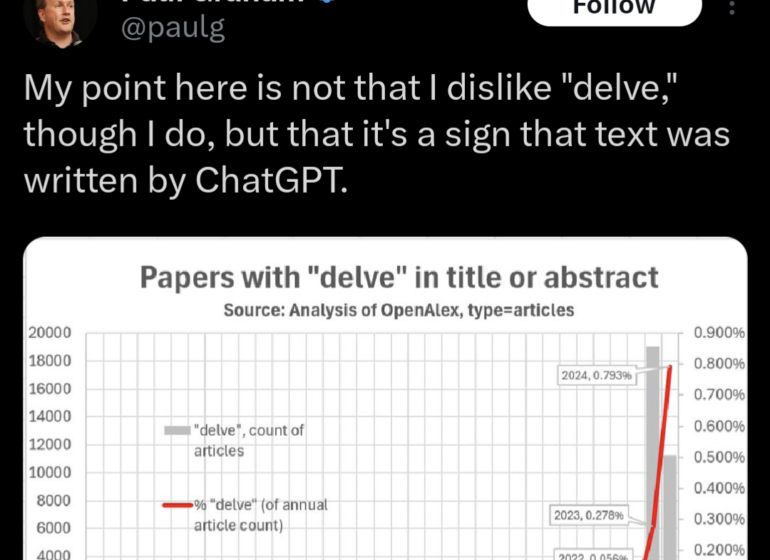
A heated debate has ignited on social media after British-American influencer Paul Graham claimed that the word “delve” is exclusively used by AI like ChatGPT and not in spoken English.
Graham’s remarks triggered strong reactions, particularly from Nigerians, who criticized him for dismissing common English usage in their region and perpetuating colonial linguistic biases.
The controversy began when Graham shared an anecdote about receiving a cold email using the word “delve,” which he attributed to AI-generated text. He later revised his stance, suggesting that using overly formal language like “delve” in emails and essays was inappropriate.

Nigerian users on social media vehemently opposed Graham’s assertions, emphasizing that “delve” is regularly used in everyday communication, especially in formal settings. They highlighted how colonial legacies have shaped perceptions of English proficiency among ESL speakers.
Critics lambasted Graham’s limited perspective and cautioned against underestimating the linguistic diversity and creativity of English speakers outside Western norms. They underscored the importance of celebrating and validating diverse forms of English expression.
The incident has sparked broader discussions about language biases, educational experiences, and cultural perceptions within global English-speaking communities. It serves as a reminder of the ongoing challenges faced by non-native English speakers in navigating linguistic expectations and stereotypes.
As the conversation continues online, many are advocating for greater appreciation of linguistic diversity and the importance of respecting all forms of English expression, including those that diverge from traditional Western standards.






Be First to Comment